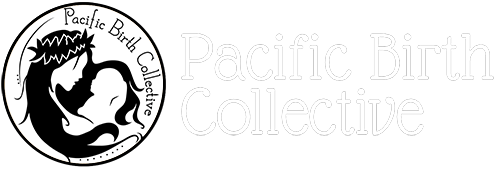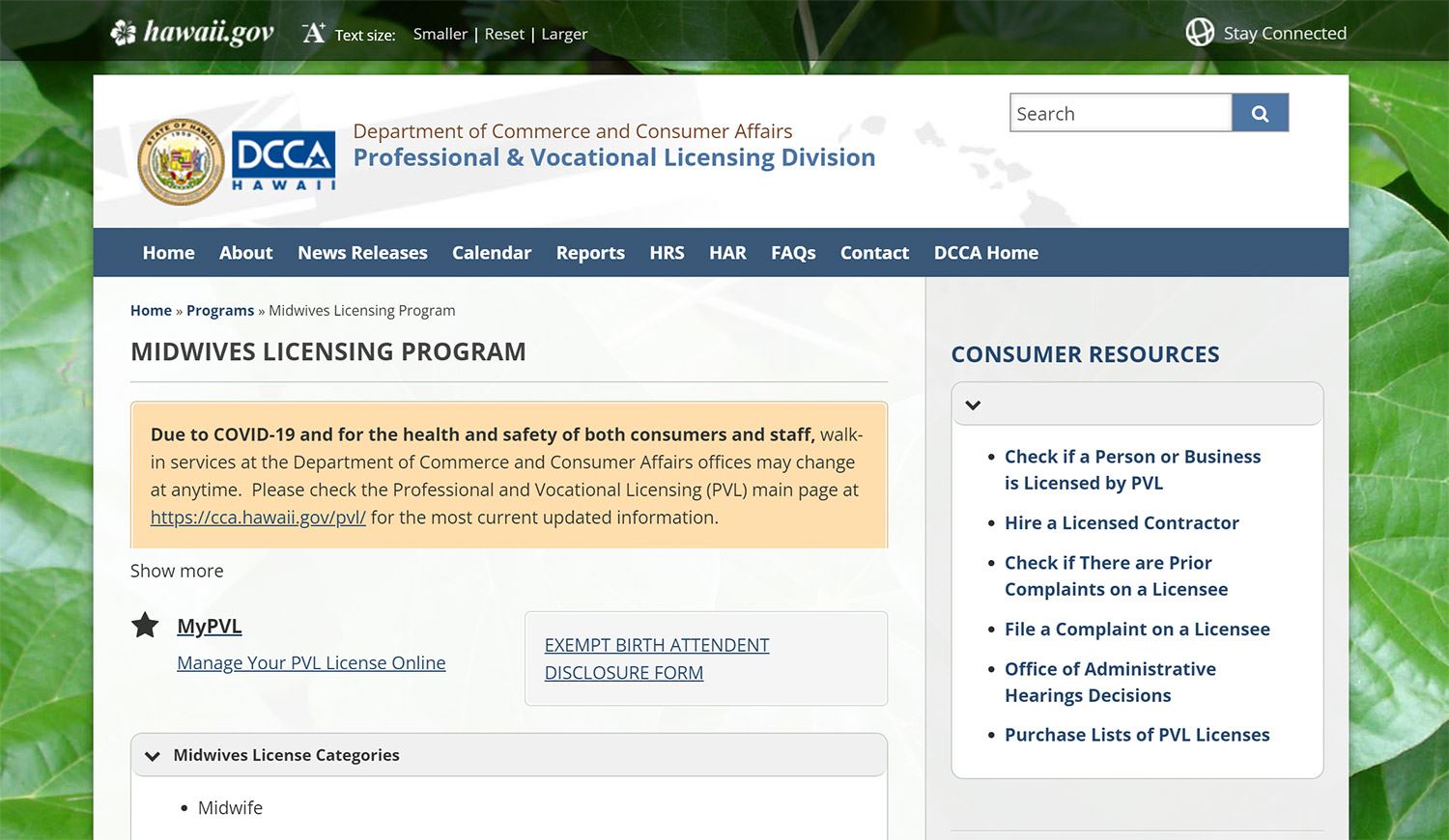Midwifery in Hawaiʻi
Lay of the land for midwifery care and licensing in Hawaiʻi
The Midwifery Model of Care
Midwifery Care is:
- A women-centered approach which perceives Pregnancy, Birth and Postpartum as an optimal state of Wellness with unique physical, spiritual, emotional, nutritional and medical needs.
- A blend between art and science acknowledging the inter-connectedness & complexity of each women's experience and needs during each stage of life from Menarche to Menopause and through all stages of her childbearing year.
| Image based on the work of Carol Gautchi, who is a Traditionally trained and licensed Midwife on the Washington Peninsula who developed and presented the framework for Classical Midwifery Care in the image above. |
Types of Modern Pregnancy and Birth Care Providers in Hawai'i
- Certified Nurse-Midwife - CNM
- Certified Professional Midwife - CPM
- Certified Midwife - CM
- Direct Entry Midwife - DEM
- Licensed Midwife - LM
- Birth Attendant - A former Midwifery Practitioner who's education and training does not qualify them for Hawai'i licensure*
- Traditional Healer*
- Pale Keiki - Traditional Native Hawaiian Healer and birth keeper*
- Hilot or Lola - Traditional Filipina Healer and birth keeper*
- Samba San - Traditional Japanese Healer and birth keeper*
Other Professionals who serve childbearing women:
- Doula: a Non-medical support person during pregnancy, birth, and postpartum
- Monitrice: Offers support as a Doula but is also able to perform basic medical care under a primary midwife or doctor
- Naturopathic Doctor - NP
- Registered Nurse - RN
- OBGYN - MD
Controversial Midwifery legislated was passed in the State of Hawaii in May of 2019. HRS 457-J is now in affect allowing Certified Professional Midwives to apply for state licensure with a temporary exemption for Birth Attendants which expired in July 2023.
|
Midwifery Around the World
Source: The Common Wealth Fund
Maternal Mortality and Maternity Care in the United States Compared to 10 Other Developed Countries
Timeline of Birth & History in Hawaii
Aunty Laulani Teale Speaking on History and Traditions of Midwifery in Hawai'i during PBC Ho'omau Birth, Culture and Equity Series: |
Traditional Midwifery
Traditional Midwives have existed in every culture in every community around the world and were widely relied on across Hawai'i until the early 1900s. Since then Traditional Midwives have been heavily persecuted and pushed underground in Hawai'i as they have been across the continental United States.
Traditional Midwives are deeply rooted and honored members of the communities they serve. Practices are community, culturally and spiritually based, incorporating many aspect of health and healing that take a lifetime of commitment, service and humility to master. Master practitioners carry a lineage of knowledge that is gained through years of experience, observation, and apprenticeship learning.
Accountability
Traditional Midwives are accountable to the community they serve. A midwife's words, actions, and reliability is openly discussed and shared by the families she serves. As in any small town, relationships and trust grow slowly over time. With modern times this discussion, wala 'au, has shifted to social media and circles of friends. Ask on the Maui Mom's Facebook group and you will quickly discover that our community inherently self regulates.
Ceremony
In traditional societies Pregnancy, Birth and Postpartum were recognized and honored as a right of passage. Through the ceremonies and traditions, important wisdom around our innate physiology, nutrition needs and protection of the unique needs of a birthing women and her baby was learned by observation and passed from generation to generation. This knowledge includes the health, safety and autonomy of the birthing person as the ultimate authority over their own process, including who attends them during various aspects and stages of their journey into parenthood.
Cultural Wisdom
There are very few traditional Native Hawaiian Pale Keiki left in Hawai'i because these practitioners have not had the freedom, community support or understanding of their value necessary to continue to practice and train the next generation of practitioners. In fact all cultural and religious traditions are currently being threatened in Hawai'i and around the globe as western, medicalized birthing practices dominate the mainstream narrative. Birth is big business in America.
If Traditional Midwifery is something that modern women value and want to have access to, all levels of support are vitally important today. Our diversity is our greatest gift. We must re-open and protect pathways for the passing of knowledge from woman to woman, from mother to daughter, from teacher to student. This ancient way of learning about our bodies and the resources in our community that sustain us must be honored and protected.


